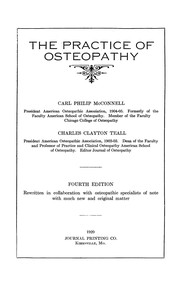Vidya Balan Reveals The Secret Behind Drastic Weight Loss - How This Particular Diet Helped
Vidya Balan's weight loss journey offers valuable insights into the connection between chronic inflammation and weight gain

Vidya Balan, the Bollywood star, has always been candid about her struggles with weight. From being body-shamed to overcoming her weight loss challenges, the actress has never shied away from discussing her personal journey. In recent months, Vidya has wowed her fans with a noticeable transformation, shedding significant weight. But unlike many celebrities who swear by intense workout regimens, Vidya revealed that her secret was a strict diet and not exercise. What's even more fascinating is that the weight loss wasn't just about cutting calories-it was about addressing inflammation.
Also Read: 5 Eating Habits That Cause Inflammation. Stop Now!
In an interview with Galatta India, Vidya shared how she met a nutrition group called Amura Health in Chennai, which helped her realize that her persistent weight struggles weren't solely due to excess fat but rather inflammation. She says, "They said, 'It is just inflammation; it is not fat.'" Vidya's revelation is crucial because inflammation could be the hidden culprit behind many people's inability to lose weight, regardless of diet or exercise. But how exactly does inflammation contribute to weight gain, and how can addressing it lead to successful weight loss?
What Is Inflammation?
Before diving into Vidya's journey, let's understand the role inflammation plays in the body. According to Dr Diane Brzezinski, chronic inflammation is a condition where the body's immune system stays activated for prolonged periods, leading to persistent low-level inflammation. Unlike acute inflammation, which occurs as part of your body's natural healing response, chronic inflammation doesn't subside after an injury or illness. Instead, it becomes part of a broader health issue, contributing to various chronic diseases like diabetes, arthritis, and even heart disease.
Chronic inflammation can be triggered by various factors such as stress, poor diet, smoking, toxins, and even environmental factors. This long-term inflammation doesn't just affect your organs and joints; it also plays a significant role in weight gain. So, how does inflammation specifically impact weight?
The Link Between Inflammation and Weight Gain
One of the key ways chronic inflammation influences weight gain is through its effect on hormones that regulate metabolism and hunger. As Johns Hopkins Medicine explains, inflammatory foods such as processed meats, fried foods, sugary beverages, and trans fats can increase inflammation in the body. These foods stimulate the immune system and contribute to a chronic inflammatory state, making it harder to lose weight.
Additionally, inflammation disrupts the normal function of insulin, the hormone responsible for regulating blood sugar. Insulin resistance, which occurs when the body's cells become less responsive to insulin, can lead to higher blood sugar levels, liver fat accumulation, and a sluggish metabolism. This creates a vicious cycle: the more weight you gain, the more your body inflames, and the more difficult it becomes to lose that excess weight.
How Diet Affects Chronic Inflammation and Weight Gain
Researchers have found that diet is one of the most effective ways to combat chronic inflammation and manage weight. Anti-inflammatory foods support the body's ability to fight inflammation and maintain a healthy metabolism. According to Dr Diane Brzezinski, CRP levels tend to remain elevated until the inflammation is reduced, and this increase can further impair the body's ability to process insulin, leading to additional weight gain. Therefore, adopting an anti-inflammatory diet can have a profound effect on reducing chronic inflammation and, by extension, managing weight.
Also Read: High-Fiber Diet May Help Cut Inflammation Caused by Gout

A healthy diet boosts your weight loss journey.
Photo Credit: iStock
Anti-inflammatory Foods to Include in Your Diet
Some of the most effective anti-inflammatory foods suggested by John Hopkins Medicine include:
- Fatty Fish: Salmon, mackerel, sardines, and tuna are rich in omega-3 fatty acids, which can reduce inflammation and support fat loss.
- Leafy Greens: Kale, spinach, and broccoli are full of antioxidants that combat inflammation and support overall health.
- Berries: Blueberries, strawberries, and raspberries are packed with antioxidants, which fight cellular damage caused by inflammation.
- Nuts and Seeds: Walnuts, flaxseeds, and chia seeds provide omega-3s and help reduce inflammation in the body.
- Fermented Foods: Probiotics found in yoghurt, kefir, and kimchi promote gut health, which is closely linked to inflammation levels.
- Turmeric and Ginger: These spices have powerful anti-inflammatory properties and can be easily added to your meals.
Also Read: From Akshay Kumar To Katrina Kaif, Celebrity Diet Secrets Revealed On 'The Kapil Sharma Show'
Foods that cause inflammation:
John Hopkins Medicine lists the following as inflammatory foods:
- Red meat, such as steak and hamburgers
- Processed meat, such as bologna, bacon, sausage and lunchmeat
- Commercial baked goods such as snack cakes, pies, cookies and brownies
- Bread and pasta made with white flour
- Deep-fried items such as French fries, fried chicken and doughnuts
- Foods high in added sugar, such as candy, jelly and syrup
- Sugar-sweetened beverages such as soda, bottled or canned tea drinks, and sports drinks
- Trans fats, found in margarine, microwave popcorn, refrigerated biscuits and dough, and nondairy coffee creamers
The key takeaway from Vidya Balan's weight loss experience is clear: it's not just about cutting calories; it's about healing your body from the inside out.












)



























































